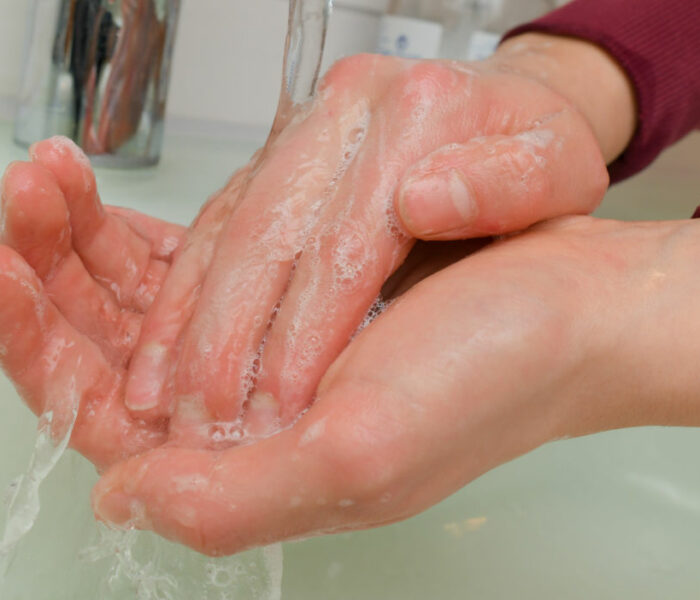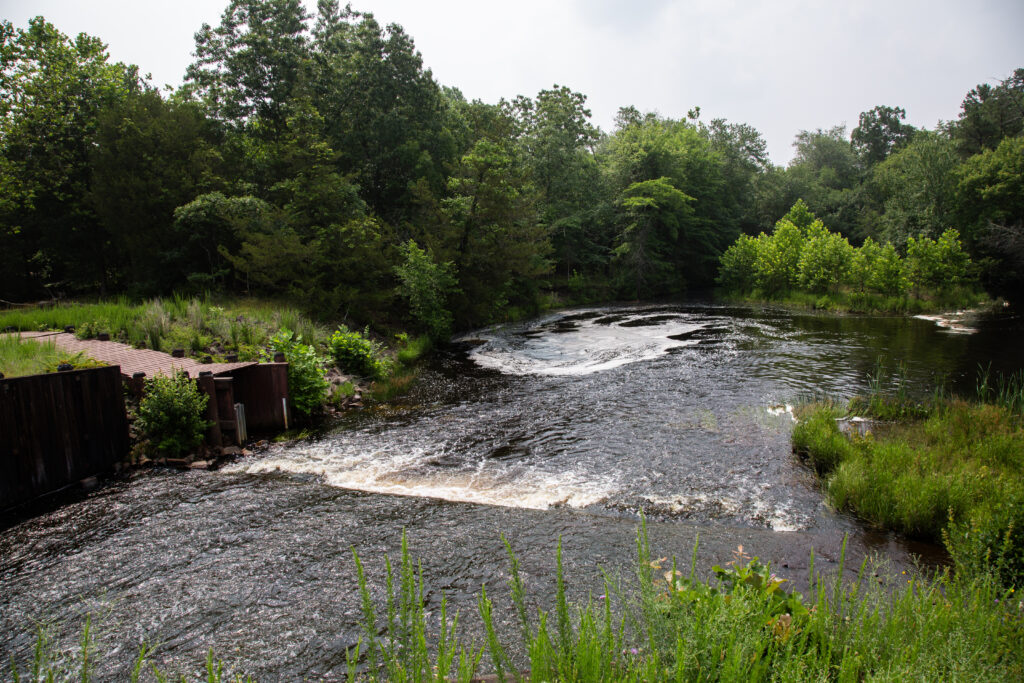Water Quality Accountability Act
(N.J.S.A. 58:31-1 et seq.)
What is the Water Accountability Act?
The Water Quality Accountability Act, P.L. 2017, c. 133 (WQAA), enacted on July 21, 2017, established new requirements for purveyors of public water to improve the safety, reliability, and administrative oversight of water infrastructure. The WQAA became effective on October 19, 2017. Read the full text of the Act, N.J.S.A. 58:31-1 et seq..
DEP Issues, “Water Quality Accountability Act Guidance” (5/22/2020)
Who does the Water Accountability Act affect?
The Act applies to public water systems with more than 500 service connections, which is approximately 300 water systems in New Jersey.

What are the new requirements created by the Water Quality Accountability Act?
The Act requires purveyors to create and implement an asset management plan designed to inspect, maintain, repair, and renew its infrastructure consistent with standards established by the American Water Works Association. In addition, the Act also specifies a methodology for routinely testing valves and fire hydrants. Also, the Act supplements the Safe Drinking Water Act (N.J.S.A. 58:12A- 1 et seq.), by requiring the submittal of a mitigation plan by purveyors that exceed a certain number of violations in a within any 12-month period. Purveyors regulated by the Act that have internet connected control systems will also need to create cybersecurity programs and join the NJ Cybersecurity and Communications Integration Cell.
How will the Water Quality Accountability Act be implemented by the NJDEP?
While the Act establishes the New Jersey Department of Environmental Protection (NJDEP) as having a central role in its implementation, it also identifies several other agencies (New Jersey Board of Public Utilities, New Jersey Office of Homeland Security and Preparedness, and the New Jersey Department of Community Affairs), with essential roles. The NJDEP is committed to the successful implementation of the Water Quality Accountability Act, and is working to identify all options for implementation that will improve the reliability, resiliency, and sustainability of NJ’s water utilities, ultimately improving the protection of public health and the environment. NJDEP continues to coordinate with partner agencies and also initiated the stakeholder process with a meeting held on November 27, 2017, to solicit comments/input.
Requirements
Valves ( Section 3)
| Component | Original Requirement | 2021 Amendments |
| Valves Greater than or equal to 12" | Inspect every 2 years – by 10/19/2019 and every other year thereafter | Inspect every 4 years |
| All other valves | Inspect every 4 years – by 10/19/2021 and every four years thereafter | Inspect every 8 years |
| All valves | GPS to the extent possible | No change |
| Repair all valves when found to be broken or otherwise not operational | Beginning 10/19/2017 | No change |
| Retain Inspection Records | For at least 6 years | For at least 12 years |
Inspection includes:
- Clearing the area
- Cleaning out valve box
- Dynamic testing – opening and closing valve according to manufacturer or the number of turns equal to 15% of completely open
Hydrants ( Section 3)
| Component | Original Requirement | 2021 Amendments |
| All fire hydrants | Test annually – by 10/19/2018 | No change |
| Implement a plan for hydrants and dead mains | No change | |
| GPS all to the extent possible | No change | |
| Label each with the purveyor’s name (eg. Abbreviation or corporate symbol), as well as an identifying number or symbol, with paint, brand, or soft metal plate | Label each with the purveyor’s name (eg. Abbreviation or corporate symbol), as well as an identifying number or symbol, with a soft metal plate, plastic, or another durable material | |
| Retain inspection records for 6 years | Retain inspection records for 12 years |
Cybersecurity Plans (Section 4)
The Water Quality Accountability Act requires that public community water systems that have more than 500 service connections to develop a cybersecurity program in accordance with the requirements established by the Board of Public Utilities (Board), and the 2021 amendments to the WQAA. The Boards’ Order identifies comprehensive cybersecurity requirements for Board regulated electric, natural gas, and water/wastewater utilities and includes the following:
- Establish a cybersecurity program that defines and implements organization accountabilities and responsibilities for cyber risk management activities and establish policies, plans, processes and procedures for identifying and mitigating cyber risk to critical systems;
- Conduct risk assessments and implement appropriate controls to mitigate identified risks;
- Maintain situational awareness of cyber threats and vulnerabilities;
- Report cyber incidents and suspicious activity to Board Staff via the New Jersey Cybersecurity & Communications Integration Cell (NJCCIC);
- Create and exercise Incident Response and Recovery Plans; and,
- Provide cybersecurity awareness and training programs.

Further, the Board Order requires each utility to appoint an executive to oversee the cybersecurity program.
The 2021 amendments to the WQAA require that cybersecurity programs must be updated within 180 days of the effective date of the law (due May 7, 2022), and to ensure that the cybersecurity program conforms to one or more of the following industry-recognized cybersecurity frameworks.
- The Framework for Improving Critical Infrastructure Cybersecurity developed by the National Institute of Standards and Technology;
- The Center for Internet Security Critical Security Controls for Effective Cyber Defense; or
- The International Organization for Standardization and International Electrotechnical Commission 27000 family of standards for an information security management system
Whenever a final revision to one of these frameworks is published, water purveyors whose cybersecurity program align with that framework, must revise their program within 180 days and submit a copy of the revised program to the NJCCIC.
Additionally, effective February 6, 2022 water purveyors are required to notify NJCCIC within 30 days of experiencing a cybersecurity incident that meets the following criteria:
- Any cybersecurity incident that results in the compromise of the confidentiality, integrity, availability, or privacy of the water purveyor’s utility billing, communications, data management, or business information systems, or the information thereon; and
- Any cybersecurity incident against the water purveyor’s industrial control system, including monitoring, operations, and centralized control systems, that adversely impact, disable, or manipulate infrastructure, resulting in loss of service, contamination of finished water, or damage to infrastructure.
NJCCIC will then audit that cybersecurity program within 30 days, at the purveyor’s expense, and identify cyber threats and vulnerabilities to that purveyor, and provide strategies to addresses those weaknesses to mitigate future cybersecurity threats. Following the audit, corrective action plans are required to be submitted to the NJCCIC.
Water Pruveyors are also required to purchase cybersecurity incident insurance policies.
By February 16, 2018, all applicable purveyors are required to have developed a cybersecurity program in accordance with the Board’s requirements. All applicable purveyors will be notified of the date and process for the future submission of the cybersecurity program.
In addition, 60 days after development of the Cybersecurity Plan (by April 17, 2018, if developed on February 16, 2018), applicable purveyors are required to join the New Jersey Cybersecurity and Communications Integration Cell to promote awareness of cyber related threats, attacks, resources and tools, and to create a cyber security incident reporting process.
Notice of Violation/Mitigation Plans ( Section 5)
A mitigation plan (including a report by a licensed operator (LO) and professional engineer (PE) that includes a technical analysis of how the mitigation plan is intended to prevent the reoccurrence of the notices of violation) must be submitted to DEP:
- By purveyors who have received 3 notices of violation for any reason within a rolling 12-month period
- By purveyors who have received 2 violations related to MCL exceedances within a rolling 12-month period
Certification (Section 6)
The highest ranking official (e.g. executive director, mayor) must certify in writing to the Department, annually, that the water purveyor complies with all Federal and State drinking water regulations and the relevant sections of the WQAA. The forms/directions for submission are:
-
- Annual Certification Form – Previously due October 19th, now due December 31st annually
- Annual Certification Form Submittal Instructions
Notes:
- When completing the Certification Form, please feel free to use the comment lines, or add additional pages for providing supporting details for both compliance and non-compliance with a requirement(s).
- Effective November 8, 2021, annual certification forms must be posted on the purveyor’s website, if the purveyor has a website.
- Two dataminer reports are available at https://njems.nj.gov/DataMiner,under the “Water Supply and Geoscience” Category to view certification forms that the Department has received.

The 2021 WQAA Amendments require the Department to audit a random selection of 10% of water purveyors’ certification statements. If a water purveyor fails to submit a certification in a timely manner, the Department must audit that certification. If the Department determines that a purveyor has made a false or misleading statement in a certification form, the Department must forward the matter to the Attorney General for additional follow-up.
For BPU regulated purveyors, the certification form may be sent via email to Board.Secretary@bpu.nj.gov or mailed to:
Aida Camacho-Welch
Secretary of the Board
Board of Public Utilities
44 South Clinton Avenue
3rd Floor, Suite 314
Post Office Box 350
Trenton, NJ 08625-0350
Asset Management Plans (Section 7)
By April 19, 2019 – purveyors need to have implemented an Asset Management Plan.
- Though the plan does not need to be submitted, it must be available upon request during inspection by the Department, and certification that the plan has been implemented must be completed on the annual October certification form.
- Minimum requirements of the Plan are:
- A water main renewal program with a 150-year replacement cycle or other appropriate replacement cycle determined by a detailed engineering analysis, or by the Department
- A water supply and treatment program designed to inspect, maintain, repair, renew, and upgrade pumps, sources and treatment facilities
- Asset management plans and system condition reports must be certified by the LO or PE and the person required to sign the annual certification form outlined in section 6 (e.g. executive director, mayor).
- Consistent with AWWA standards
- The Department’s Asset Management Plan Technical Guidance can be found here.
- Annually – each purveyor must dedicate funds to address/remediate the highest priority projects in their plan
- On March 15 annually, each purveyor must submit to the Department a Capital Improvement Report based on the infrastructure improvements taken, and to be taken and the costs of those improvements.
Capital Improvement Reports
Each purveyor must submit a report based on the infrastructure improvements taken, and to be taken and the costs of those improvements. The Department has finalized the central portal to receive these reports at https://www.nj.gov/dep/online/. The below worksheet outlines the requirements for this submittal, and instructions for how to access the submittal service. This report must be submitted for each Public Community Water System with more than 500 service connections on a per-PWSID basis. In consultation with DCA, this report is due March 15, 2024 and annually thereafter.
DEP Actions
The 2021 Amendments to the WQAA include a number of steps that the Department must take. Those steps include the following:
- The adoption of rules to full implement the WQAA by May, 2023. Per the rulemaking timeline, the Department expects to issue a rule proposal by May, 2022.
- The creation of a Report Card by November 8, 2022. The 2021 Amendments require the Department to develop and publish a report card for each water purveyor in the State, indicating the water purveyor’s compliance with federal and State drinking water quality standards, the WQAA, and any other factors the department deems appropriate. The Department is in the process of evaluating the factors to be considered in that report card, and will share more information as the due date approaches.
- The Department will be required to issue a report to the Governor on the Legislature on May 8, 2023, and every three years afterwards, outlining the data received by the Department in the Capital Improvement Reports. This report must include an analysis of the analysis of the total estimate cost of water infrastructure improvements statewide over the next ten years, as well as compliance with the WQAA as a whole.

FAQs
Applicability
All public community water systems with 500 or more service connections.
Valve/Hydrant Inspection Questions
Not currently, however you are required to maintain these records for at least twelve years, and they should be made available during inspections conducted by the Department. However, the Capital Improvement Report requirement requires some baseline reporting on valve and hydrant testing frequency.
Yes. The 2021 amendments to the WQAA provide additional flexibility for purveyors to select a way to label their fire hydrants, being a soft metal plate, plastic, or another durable material.
The Department interprets the legislation to include the valves in the distribution system, and not those in the treatment system.
Yes, all GPS data must be collected in accordance with NJDEP standards. Please see the “NJDEP GPS Data Collection Standards for GIS Data Development.”
Cybersecurity Questions
The New Jersey Cybersecurity and Communications Integration Cell (NJCCIC) is the State’s one-stop shop for cybersecurity information sharing, threat analysis, and incident reporting. All purveyors under the WQAA (that have internet-connected control systems) must join NJCCIC within 60 days of developing their cybersecurity program. This can be done by accessing their website: www.cyber.nj.gov/, clicking on the “Membership” tab, and filling out the relevant contact information.
NJCCIC has developed a portal-based certification service at its website where purveyors must submit an annual self-assessment of their cybersecurity programs. This submittal can be accessed at NJCCIC’s website, in its Member Portal. If you are having difficulties accessing the submittal, or the member portal itself, please contact NJCCIC directly.
Additionally, following any cybersecurity incident impacting either a purveyor’s operational, or business data, notification must be made promptly to NJCCIC of the incident.
With the 2021 Amendments to the WQAA, there is no longer an exemption for water purveyors without internet-connected controlled systems. All public community water systems with >500 service connections must develop cybersecurity programs, regardless of SCADA configuration. For more information please contact NJCCIC
Asset Management Questions
Funding is available to support Asset Management Planning, as well as for Capital Projects established in asset management plans from the NJ Water Bank. More information about eligibility for this funding is available here.
No, you do not need to submit your Asset Management Plan; however, the Asset Management Plan must be implemented by April 19, 2019, and must be available upon request during inspection by the Department. Also, you must certify that your Asset Management Plan is being implemented on the annual October certification form.
The Capital Improvement Report (CIR) must be submitted annually, by March 15th. The CIR must be submitted via the DEP Online portal (https://www.nj.gov/dep/online/), using the “Capital Improvement Reporting” service. An excel spreadsheet which can assist in compiling the requisite information prior to submittal is available here. Note that the excel spreadsheet itself will not be accepted for compliance purposes, all information should be entered in the portal itself.
Briefly, the CIR includes a description of the capital projects which are planned in the next 10 years, those which have been completed in the past year, distribution system characteristics, valve and hydrant inspections, and certain characteristics related to Technical, Managerial, and Financial Capacity.
The mains must be replaced on a 150-year replacement cycle, an other appropriate cycle as determined by a detailed engineering analysis, or as determined by the Department.
Yes, a thorough Asset Management Plan should include a water loss audit. Free water loss audit software can be obtained on the American Water Works Association website.
NJDEP’s Asset Management Policy Webpage
American Water Works Association – Asset Management Program
American Water Works Association – Standards
American Water Works Association – Water Loss Control
New Jersey Board of Public Utilities
New Jersey Office of Homeland Security and Preparedness
New Jersey Cybersecurity & Communications Integration Cell
New Jersey Department of Community Affairs
Funding
The Water Bank has the ability to finance any planning, design, Asset Management or Fiscal Sustainability Plan development or investigative activities as required under the Water Quality Accountability Act, as long as these activities result in a Capital Improvement Project. The Financing is available in the form of a Short Term (3 year) Loan, presently at low interest rates with the expectation to convert this financing into a Long Term (30 Year or useful life) Loan along with the Financing of the Capital Improvement Project through the program. Principal Forgiveness for smaller systems may also be available. Please contact the Water Bank for more information.
